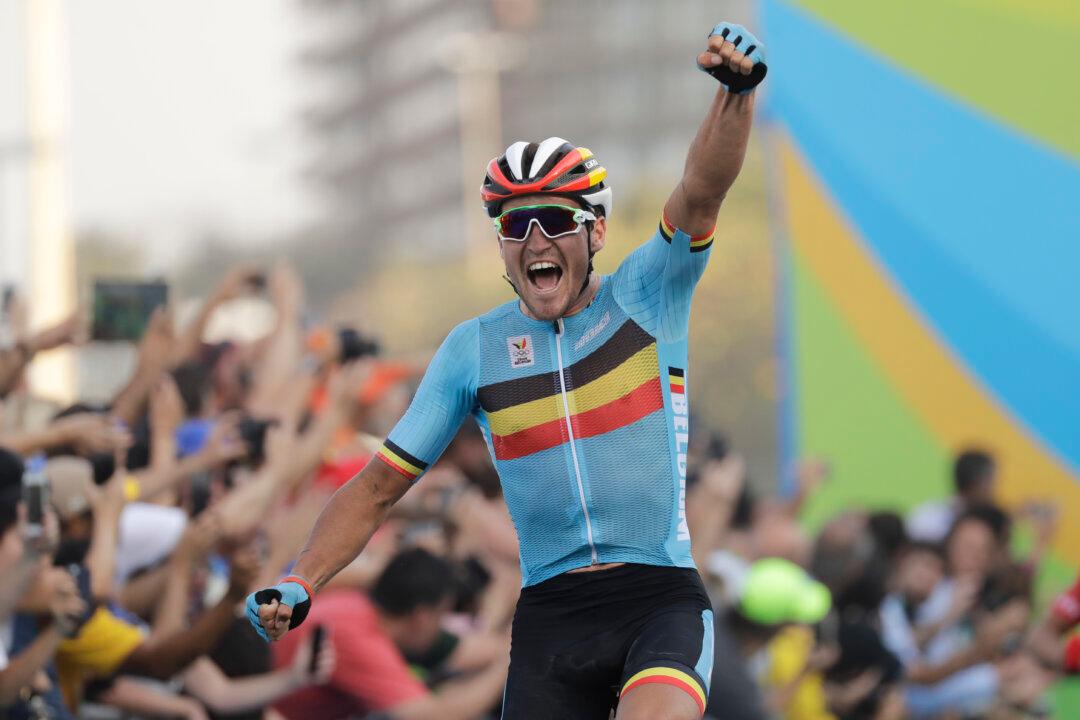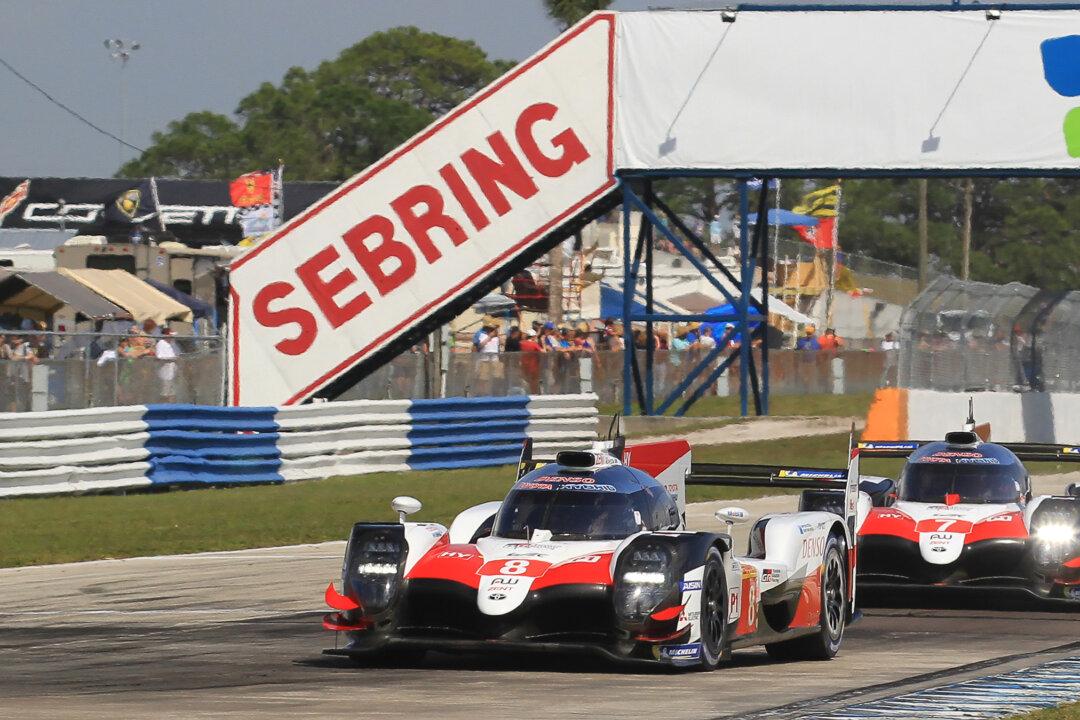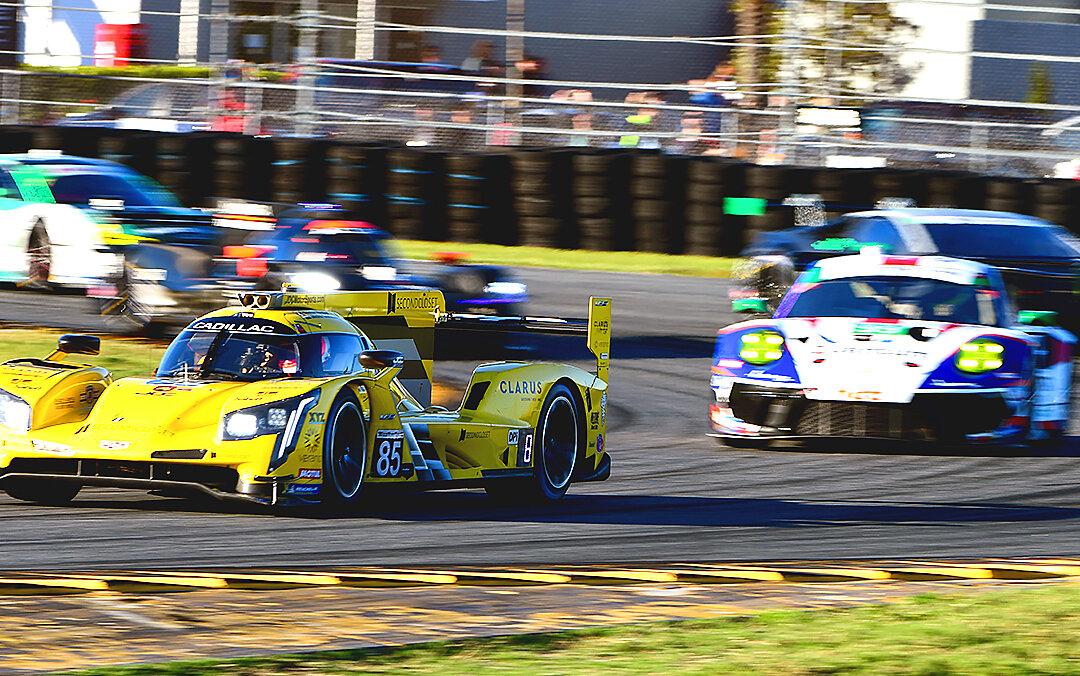Greg Van Avermaet won the final sprint after six hours of tough climbs and dangerous descents to capture the gold medal in the Men’s Cycling Road Race at the 2016 Rio Olympics, Saturday afternoon, August 6.
The Belgian rider bridged across to the leading group with 70 km left in the 237.5-km race. He had to fight hard to stick with the leaders on the numerous short steep climbs and narrow, twisting descents which punctuated the course. When the trio of Italy’s Vincenzo Nibali, Colombia’s Sergio Henao, and Poland’s Rafal Majka attacked 18 km from the finish, Van Avermaet was not able to follow.

Italy's Vincenzo Nibali (R-L) leads Colombia's Sergio Luis Henao and Poland's Rafal Majka in the final kilometers of the Men's Road cycling race in the Rio 2016 Olympic Games in Rio de Janeiro on August 6, 2016.Greg Baker/AFP/Getty Images





